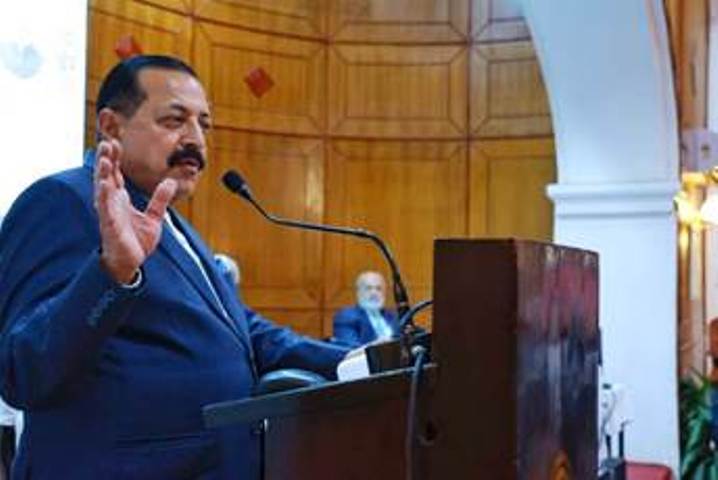Grievance Resolution Time Reduced to 13 Days: Dr. Jitendra Singh Highlights Milestone in Citizen-Centric Governance
The Minister highlighted the transformation of the Centralized Public Grievance Redress and Monitoring System (CPGRAMS), introduced in 2007, into a highly efficient grievance management platform.

- Country:
- India
Union Minister Dr. Jitendra Singh, responsible for multiple portfolios including Science and Technology, Earth Sciences, and Public Grievances, announced a landmark achievement in public grievance redressal. The average time to resolve grievances has been slashed from 30 days to just 13 days, with plans to reduce it further.
The announcement was made during the National Workshop on Effective Redressal of Public Grievances, held virtually, where Dr Singh praised the strides made under Prime Minister Narendra Modi’s leadership toward responsive and citizen-centric governance.
Revolutionizing Grievance Redressal with CPGRAMS
The Minister highlighted the transformation of the Centralized Public Grievance Redress and Monitoring System (CPGRAMS), introduced in 2007, into a highly efficient grievance management platform. He detailed the ten-step reforms undertaken in recent years, which have significantly enhanced system efficiency and citizen satisfaction.
Key Achievements in 2024: Over 116,000 grievances were registered in October alone while pending grievances in central secretariats were reduced to 53,897.
For 28 consecutive months, over 100,000 grievances have been resolved monthly by central secretariats, setting new benchmarks for efficiency.
Over 51,000 new users joined CPGRAMS in 2024, showcasing its growing adoption and reliability among citizens.
Dr. Singh noted that public feedback reflects increased trust in the government’s initiatives. Ministries such as Skill Development, Postal, and Food Distribution excelled in resolving grievances among Group A ministries, while Parliamentary Affairs, Empowerment of Persons with Disabilities, and Land Resources Departments led Group B ministries.
Next-Generation Technology for Smarter Governance
Looking ahead, Dr. Singh announced the introduction of Artificial Intelligence (AI) and Machine Learning (ML) technologies to modernize grievance redressal further. These innovations aim to:
Enhance user experience through predictive analytics and personalized interfaces.
Streamline backend processes to reduce resolution times.
Provide real-time insights for policy refinement based on grievance trends.
“These tools will align grievance management with citizens’ expectations, making governance more transparent, accessible, and effective,” Dr. Singh explained.
Strategic Role of Grievances in Governance
Dr. Singh emphasized the strategic importance of grievance redressal as a mirror of public sentiment on government services and policies. The government aims not only to resolve grievances but also to enact systemic reforms that prevent recurring issues.
“Public grievances are not just complaints—they’re valuable feedback that shapes policy and service delivery,” the Minister said. He also stressed the government’s commitment to proactive governance, where citizens’ ease of living is at the forefront of decision-making.
Collaboration and Deliberation at the Workshop
The workshop brought together senior officials, ministry representatives, and stakeholders to discuss enhancements to grievance redressal mechanisms. Key sessions focused on:
Sharing best practices across ministries and departments.
Leveraging technology to improve resolution speed and quality.
Building an inclusive ecosystem that ensures every grievance is addressed comprehensively.
Future Outlook
Dr Singh reaffirmed the government’s vision of seamless and inclusive governance. He reiterated that the evolving grievance redressal framework is integral to improving public trust and satisfaction.
“Reducing grievance resolution time is just the beginning. Our mission is to ensure that citizens experience a governance system that not only resolves issues swiftly but also preempts their occurrence through intelligent planning and systemic reforms,” Dr. Singh concluded.
The workshop marked another step toward the government’s goal of building a citizen-first governance model, driven by technology, accountability, and transparency.










